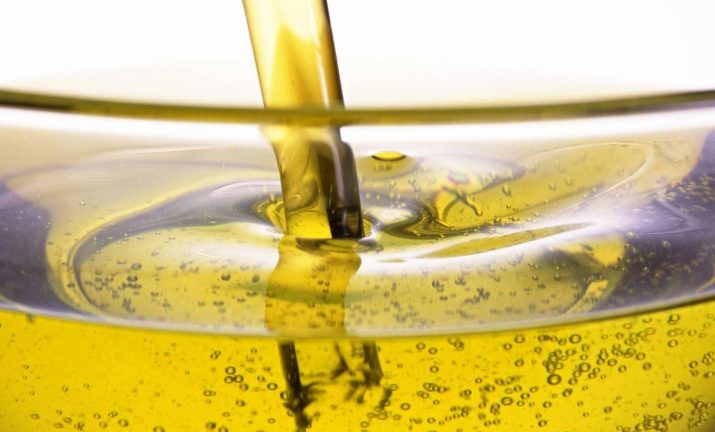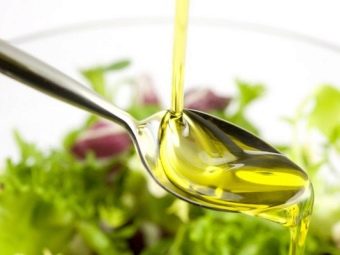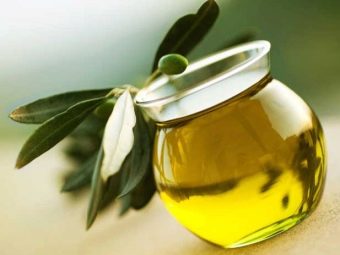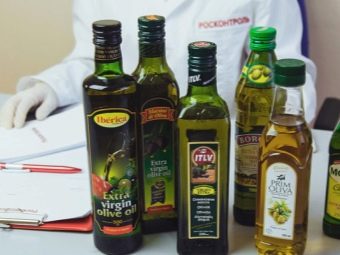Olive or sunflower oil: what is healthier and how do products differ?

Disputes about what is healthier — olive or sunflower oil — have not subsided ever since the tropical variety of this product first entered our market. Supporters surely have both one and the other, but a reasonable consumer will not blindly believe in taste and aroma, but will try to compare two products, trying to find the difference. It, of course, is, therefore we will try to pay attention to differences.
Sorta
It should be immediately understood that both sunflower and olive oils also differ depending on the variety, therefore, occasionally absolutely objective comparison can win both the one side and the opposite. Differences in varieties need to be able to properly use, because the oil is used for different needs, and what is not suitable for salad, it may be much better for frying.
For example, both olive and sunflower oils are unrefined or refined. The product is either squeezed out mechanically, or extracted by extraction — by adding various solvents, which will subsequently be removed from the liquid. This results in unrefined oil, which has a rich color, the same smell and taste. This option is optimal for salads and other cold-cooked dishes, but you shouldn’t fry it - components contained in the process of boiling can release harmful substances that will not add health. At the same time, the burning temperature of the unrefined oil is relatively low.
To rid the liquid of potentially hazardous components and make it suitable for frying, the oil is refined, that is, purified. Such a liquid normally carries temperatures up to 240 degrees above zero, since there is nothing superfluous in it. However, it also does not smell and taste, which disappeared during cleaning, and the color, by the way, almost disappears - the oil becomes almost transparent. Such a product can be added to the salad, but the effect of improving the dish will be insignificant.
For this reason, between the two types of oil comparison is carried out only in the context of unrefined varieties. Refined oils are not so easy to distinguish from each other, besides, they lose most of the useful and harmful substances.
Vitamin content
Butter does not seem to be the most vitamin product, and yet it is made from vegetable raw materials, in which the vitamins must be present. They are transferred to the oil produced from such raw materials.
So, sunflower oil is very rich in vitamin E - it is three times as much here as a competitor. On the contrary, olive oil contains a significant dose of vitamin K, which the sunflower variety is not rich.
However, it is important to note here that both vitamins are necessary for the human body, but in relatively small amounts.
It would be wrong to say that due to the high content of a particular vitamin, one of the two oils is healthier, so it is best to use sunflower, and after a while replace it with olive oil, and so constantly.
Calorie content
For many modern women, product evaluation begins with how it fits to their favorite diet. Naturally, oil cannot, in principle, be dietary, but it’s consumed relatively little, because women are very picky about what kind of oil to fill lettuce with. Studies show that there is not much difference, because it is almost impossible to determine which oil is less caloric.
Average values range from about 899-900 kcal per 100 grams in favor of sunflower oil, but the performance of each individual variety may vary. In general, we can say that there is not much difference according to this criterion.
Saturated Fat
This component is the most dangerous in the composition of any oil, because it is he who is responsible for the accumulation of excess weight.As is often the case, it is impossible to do without a harmful component, since it brings certain benefits. If you do not abuse saturated fats, they are necessary for the normal functioning of many systems of the human body. However, the situation with modern nutrition is such that such substances are consumed too much, and therefore an abundance of saturated fats in the diet leads to an increased absorption of cholesterol. The result of this is not only problems with excess weight, but also diseases of the cardiovascular system.
Both types of cholesterol oil do not contain at all, but to a certain extent contribute to the fact that it remains in the body after eating other products. Therefore, the criterion of leadership again for sunflower oil, and again - unsure: studies show that vegetable oil is still a bit more harmful.
Unsaturated fats
Oddly enough, fats can not only increase but also normalize the amount of cholesterol in the blood - polyunsaturated fats are responsible for just such processes. Substances of this type constitute the overwhelming majority of both olive and sunflower oils, but in sunflower their content is still higher - 80% versus 77%. However, even nutritionists agree that this difference is not so fundamental.
Phytosterols
There are some substances that prevent the absorption of cholesterol from any food, thereby reducing the likelihood of weight gain and the occurrence of associated diseases. The most well-known phytosterols are linoleic and alpha-linoleic acids, which are also widely known as omega-6 and omega-3, respectively. In sunflower oil, they are practically absent, but they are well represented in the composition of olive species.
This is perhaps the only clear advantage of the fruit of an olive tree over sunflower seeds, but it is clearly pronounced, whereas the advantages of sunflower oil are usually relatively weak.
Digestibility
And here is another indicator that leads olive oil. It is absorbed in the human body, on average, one-fifth better than sunflower. The reason for such a high rate is the fact that up to ¾ of the composition of olive oil is oleic acid, in which the body desperately needs, and therefore its use is useful. However, in sunflower oil, it is also present in a high proportion of content - up to 45%.
Quality level and prices
It should not be forgotten that any praised product is really useful only if its highest quality sample is taken. According to this indicator, the difference between olive and sunflower oil is also very noticeable.
For example, sunflower oil in our latitudes, each country produces itself. In the same Russia, each region has its own manufacturers, which produce both high-quality and mediocre sunflower oil. If you do not understand the range, you can guess with a choice far from the first time, but absolutely all types are relatively inexpensive - affects the production in a country with relatively low wages and proximity to the consumer.
With olive oil, the situation is somewhat different. In our area, if it is released somewhere, it is very limited - especially since consumers simply will not trust such a product. This variety is imported from warm countries - mainly Greece, Spain and Italy, and there the workers' salaries are higher and the delivery costs vary greatly. At the same time, such products are often regarded as the most high-quality, but here importers are cunning.
The fact is that really good olive oil in our understanding is extremely expensive, because it is imported into our country in limited quantities and is not sold everywhere - the main market for it is Western Europe and North America.For the sake of fairness, an absolutely bad oil is usually not delivered to us either - low quality products, as a rule, are not exported at all, unless it is about China. It turns out that almost all of the olive oil on the domestic shelves is of medium quality at relatively high prices.
What to choose?
Summarizing all the above, it would be correct to summarize that it is impossible to draw unequivocal conclusions regarding the priority of a particular type. There are certain advantages for both olive and sunflower oil, but theoretically, even without both of them can be dispensed with.
In this regard, the most reasonable choice is to start from their own preferences associated with taste and aroma. However, if you want to get the maximum benefit and indulge yourself with gastronomic diversity, it makes sense to alternate different oils, discovering new combinations.
To the end to determine the difference between olive and sunflower oils will help you the following video.

































